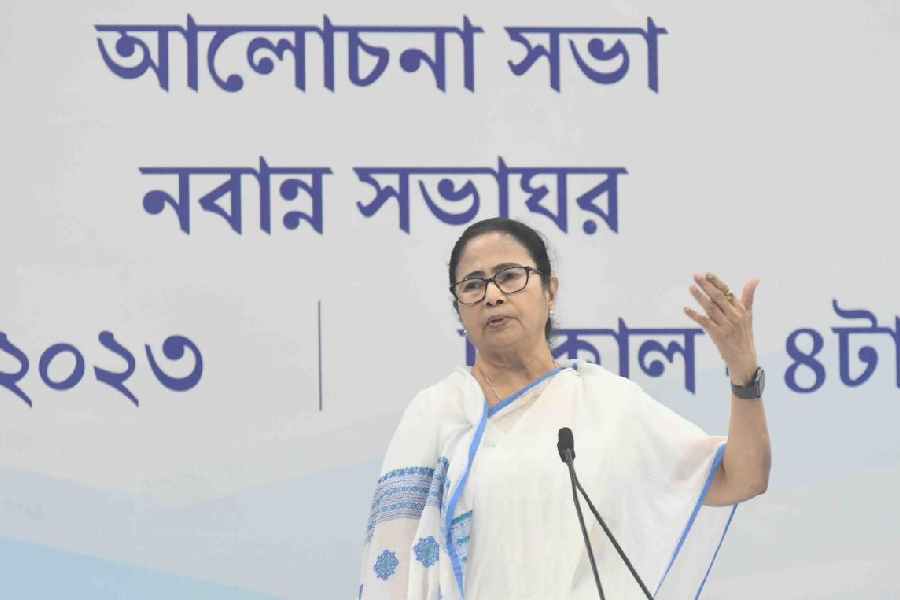Flashback to 1923, Italy.
Benito Mussolini’s Fascist Party has established itself as the most powerful political bloc in the country. The communists, led by the unforgettable Marxist Antonio Gramsci, are opposing the fascists tooth and nail on the streets and inside the parliament. Gramsci remains devoted to the cause of Opposition unity. He is trying to weld a solid political constellation by tying up with the socialists and liberal democrats. The sectarians within his party, led by Amadeo Bordiga, scuttle his efforts and the much-needed unity against the rampaging fascists does not materialise.
Mussolini exploits this tragic division within the Opposition to usurp absolute power. After attaining his aim, he directs his attention towards his political adversaries. Cruel, unspeakable repression begins. The worst sufferers of his merciless assaults are the communists. Gramsci is sentenced to 10 years in prison where he gradually withers away, but not before completing his magisterial Prison Notebooks.
Flashback to 1933, Germany.
Adolf Hitler’s National Socialist Party (or the Nazis) capture 33 per cent of the votes and emerge as the strongest political formation in Germany. Communists, social democrats and Christian democrats together constitute the majority. Again, they fail miserably to put up a united front against the fascists. The communists, alone, engage themselves in bitter street battles against the Nazis in Berlin, Bremen, Hamburg and other cities.
But they are cornered, subjugated and vanquished. Great writers like Thomas Mann and Bertolt Brecht are forced to go into exile. Following in the footsteps of Mussolini and helped by President Hindenburg, Hitler wrests absolute power. Thereafter, he sends hundreds of communists, socialists and liberals to the concentration camps. The latter failed to unite at the crucial moment and they had to pay dearly. Once again, the communists in Germany were the worst victims of fascist oppression.
What deserves a particular mention in this context is that both Mussolini and Hitler used the electoral process, in the first phase, to climb the stairs of power. Later, exploiting the fragmentation of the Opposition, they subverted the democratic process and captured absolute power.
Flashback to 2023, India.
The searing question is: What have the Indian communists — leaders and cadres — learnt from these two devastating experiences?
The communists claim, more than others, that they are meticulous students of history. What has history taught them? Or, even more important, have they been able to discover the basic and principal political contradiction prevailing in the Indian polity at the present moment? Who is their most inveterate enemy, the BJP, Hindutva and Sangh parivar or the Trinamul Congress in Bengal and the Congress in Kerala?
The situation is far less complicated in Kerala, where not the BJP but the Congress and the communists directly oppose each other. Almost all the seats, if not all, will be won by both together. If the BJP appears to be marginally strong in one constituency or another, the ideal countermeasure would be to field a single “secular” candidate who will be supported by the Congress as well as the communists.
The BJP, on its part, will trenchantly criticise this “mock-amity”, even “hypocritical duplicity” of the two opponents, but one could afford to ignore this superciliously. In other words, the BJP will try to use all its arrows to ridicule the Congress and the communists but that should not bother them.
The picture in Bengal, where the BJP dreams to win 35 Lok Sabha seats, is evidently more complex. Both the centrist-secular ruling formation, Trinamul, and the Left-secular force, led by the CPM, have accepted Amartya Sen’s description of the BJP and the Sangh parivar as the dreaded representatives of “communal fascism”.
Nevertheless, the two political groups have till now, despite their convergence at the level of analysis, not shown signs of any political accommodation. In this particular sphere, it has to be admitted that the victorious Trinamul has shown itself to be less inflexible.
The CPM, on the other hand, has preferred to be intransigent over one main accusation: Trinamul’s rampant lumpen activism during the panchayat elections. As far as this reason is concerned, the CPM’s history of violence is no less bizarre. From setting afire Ananda Margis in daylight to the massacre in Nandigram — with Marichjhapi, Garbeta, Keshpur and other depredations thrown in between — the Left Front has also been violent.
Critics accuse Trinamul of being abysmally corrupt and lumpen to its core. But Trinamul has committed nothing comparable to the carnage in Gujarat in 2002 and Manipur in 2023.
If this is the burning truth that stares us in the face, is it not desirable that Trinamul, the Left and the Congress arrive at some sort of a minimum accommodation in Bengal and set up a shining example of political cohabitation? If nothing else, the experiences of Rome and Berlin, tragic as they were, should prompt the Left and others to rethink — and rethink fast.
Any scheme that leads to a fruitless division of the anti-BJP vote would favour only the principal opponent. As far as practicable and possible, one-to-one fights should act as the determining and decisive strategy.
I am reminded, at this moment, of the instructive reaction of a very senior CPM member, an esteemed academic, who was deeply concerned before the last Assembly elections in Bengal. On the day of counting, he rang up more than once to enquire about the trend. When he at last heard that Trinamul had trounced the BJP, he felt unmistakably relieved and “delighted” at the outcome.
“But aren’t you a dedicated party member?” I asked.
His categorical answer was: “No matter how much I dislike Trinamul, it has effectively thwarted the advance of communal fascism in West Bengal.”
This dedicated party member is also a dedicated student of history. He has imbibed the necessary lessons.
We should recall his immense relief at this turning point for the nation.
Subhoranjan Dasgupta is a former professor of human sciences











